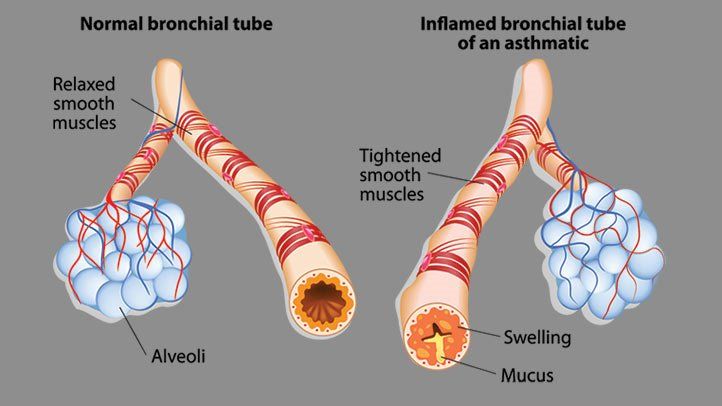
14 causes of wheezing—and how to treat it
It can be from respiratory, gastrointestinal, or even heart issues. Here’s what you need to know.
Have you ever heard a whistling or rattling sound when you breathe? It could be wheezing, a sign that you’re having difficulty getting air out of your lungs. Wheezing most often occurs when the small airways in the lungs (called bronchial tubes, or bronchioles) become blocked, constricted, or inflamed. Wheezing can happen because of respiratory conditions like asthma or pneumonia. But it can also be due to things like heart conditions, digestive issues, and even stress.
Wheezing is common and has many causes. In one study of adults aged 20-44, roughly 20% reported wheezing in the last year. Notably, babies, with their smaller airways, are particularly prone. In fact, nearly 30% of babies will develop wheezing by a year of age. Some wheezing resolves without treatment. But chronic or serious cases need medical treatment. Here, what you need to know to breathe easier.
What does wheezing feel like?
Wheezing is a shrill or high-pitched whistling sound made on inspiration or exhalation; however, it is much more common to occur with exhalation. This is called expiratory wheezing. When you wheeze, your chest may feel tight and breathing can be difficult. It feels like:
Shortness of breath
Inability to breathe out fully
Rapid, shallow breathing
What causes wheezing?
Wheezing usually occurs when the air tubes in the lungs are inflamed. It can also occur when the muscles around the airways tighten, causing the airways to narrow. “When a healthcare professional thinks of wheezing, they think of sounds coming from the lungs,” says Gabriel Neal, MD, a clinical associate professor at Texas A&M University College of Medicine. “And that’s generally only heard with a stethoscope.”
While wheezing-like sounds can emanate from the upper airways (like the nose or throat), the noise is most likely “congestion, snoring, or stridor,” says Jessica Hui, MD, an allergy and immunology physician at National Jewish Health in Denver. Stridor is a high-pitched but less musical sound than a wheeze and can result from viral infections like the croup.
It’s unlikely that upper airway issues, such as post-nasal drip, sleep apnea (a sleep disorder where breathing stops and starts), or even allergies will result in wheezing. Ditto for vocal cord dysfunction, which occurs when the vocal cords shut when they should be open. Vocal cord dysfunction can occur due to viral infections, anxiety, or cigarette smoke, making it hard to get air into the lungs.
“Patients can usually decipher if the discomfort or noisy breathing is coming from the throat or in
the chest,” Dr. Hui adds. “But if it’s a noise you’re able to hear, it’s more likely to be from the throat or upper airway, and not the lungs.”
Some of the most common causes of wheezing are:
Asthma
Acute bronchitis
COPD
Reactive airway disease
COVID-19
Pneumonia
Bronchitis
Lung cancer
Cystic fibrosis
Congestive heart failure
GERD
Smoking
Stress
Foreign object
Asthma is a chronic lung condition in which the lungs respond to certain triggers, such as exercise, smoke, allergies, or respiratory infections like the common cold, with swelling and wheezing. Other symptoms can include cough and chest tightness. Nearly 50% of people with asthma report wheezing as a symptom. If you experience wheezing at night, it could be a sign your asthma is not well-controlled.
Advertisements
11 March 2022
Advertisements



